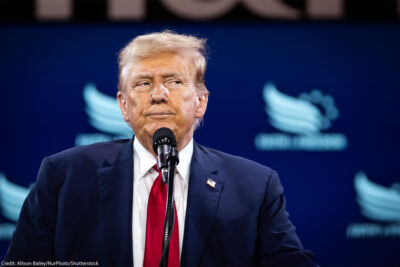Freedom of the Press
The ACLU works in courts, legislatures, and communities to defend and preserve the individual rights and liberties that the Constitution and the laws of the United States guarantee everyone in this country.

Stay informed about our latest work in Freedom of the Press.
By completing this form, I agree to receive occasional emails per the terms of the ACLU's privacy statement.
The Latest
Explore More
What's at Stake
“The press was to serve the governed, not the governors.”
—U.S. Supreme Court Justice Hugo Black in New York Times Co. v. United States (1971)
The freedom of the press, protected by the First Amendment, is critical to a democracy in which the government is accountable to the people. A free media functions as a watchdog that can investigate and report on government wrongdoing. It is also a vibrant marketplace of ideas, a vehicle for ordinary citizens to express themselves and gain exposure to a wide range of information and opinions.
The rise of the national security state and the proliferation of new surveillance technologies have created new challenges to media freedom. The government has launched an unprecedented crackdown on whistleblowers, targeting journalists in order to find their sources. Whistleblowers face prosecution under the World War One-era Espionage Act for leaks to the press in the public interest. And in the face of a growing surveillance apparatus, journalists must go to new lengths to protect sources and, by extension, the public’s right to know.
The ACLU has played a central role in defending the freedom of the press, from our role in the landmark Pentagon Papers case to our defense of whistleblower Edward Snowden and our advocacy for a new media shield law. When press freedom is harmed, it is much harder to hold our government accountable when it missteps or overreaches.
“The press was to serve the governed, not the governors.”
—U.S. Supreme Court Justice Hugo Black in New York Times Co. v. United States (1971)
The freedom of the press, protected by the First Amendment, is critical to a democracy in which the government is accountable to the people. A free media functions as a watchdog that can investigate and report on government wrongdoing. It is also a vibrant marketplace of ideas, a vehicle for ordinary citizens to express themselves and gain exposure to a wide range of information and opinions.
The rise of the national security state and the proliferation of new surveillance technologies have created new challenges to media freedom. The government has launched an unprecedented crackdown on whistleblowers, targeting journalists in order to find their sources. Whistleblowers face prosecution under the World War One-era Espionage Act for leaks to the press in the public interest. And in the face of a growing surveillance apparatus, journalists must go to new lengths to protect sources and, by extension, the public’s right to know.
The ACLU has played a central role in defending the freedom of the press, from our role in the landmark Pentagon Papers case to our defense of whistleblower Edward Snowden and our advocacy for a new media shield law. When press freedom is harmed, it is much harder to hold our government accountable when it missteps or overreaches.





